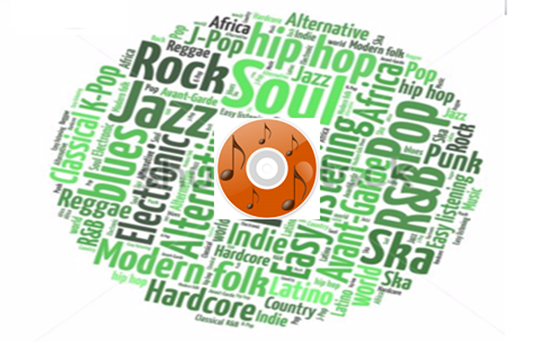
Various Music genres and styles. While classical music ruled the eighteenth and nineteenth centuries, the twentieth century saw the emergence of many more styles of music. Most music styles differ from one another depending on – things like scale, rhythm patterns or instrument used.
Introduction to Music Genres
Music is an art form that uses sound (generated through instruments and vocals) to arouse emotional experiences in humans.
These instruments (and vocals) can be used in different ways to create a unique listening experience.
Music has also evolved over the years in several ways, influenced by cultures and various other factors.
The sound of music has also changed over the years, as more musical instruments are made available to composers, who now have access to more sophisticated and complex sounds. The computer further makes it easy to work with various software, to create unique beats and to enhance the various sounds.
A music genre is a classification system using which music can be categorized into different styles depending on the distinctive elements.
Pop Music
Whenever you refer to pop-music, it would normally mean a song which is in the Top-20 or Top-40 of any TV/Radio channel.
Tune into your favorite radio station and you would most likely be listening to a pop song.
All these songs would normally be sung by your favorite singers like Elton John, Billy Joel, Beyonce, Lady Gaga, Paul Simon, Celine Dion, Sting (just to name a few) – you can pick up any song of these great singers and that would be a pop song.
You will notice that most of the popular songs are Ballads, which is nothing but slow, sentimental songs.
Rock Music
This popular genre of music originated in the 1960s and 1970s (as Rock n Roll) and is today an international style known as rock music.
Rock music’s origins goes back to the late 1940s, when country and blues (popular styles at that time) were blended to produce a new sound.
It grew out of the rock’n’roll, which itself was inspired genres like country and rhythm & blues. Pioneer rock artists relied heavily on classic blues structures. Since then, rock music has been constantly evolving, and today several subgenres of rock music exists (inspired by music from all over the world).
The moment you talk about rock songs, listeners associate it with high energy. Characteristics of Rock music include amplified instrument sounds, heavily accented beats and heavy usage of electric guitar, bass and drums.
In the earliest rock and roll styles, piano or saxophone would often be the lead instrument, but these got replaced with the guitar (around mid-1950s).
Classic rock and roll is usually played with electric guitars (one lead, one rhythm), a string bass or (electric bass guitar), and a drum kit.
Over the years, several sub-genres of Rock emerged such as:
- Alternative Metal: This stye features furious solos and accelerated tempos, uses abrasive sonic textures. Key Artists: Tool, Staind, Korn
- Hard Rock: Pounding drums and loud guitars, more volume and up-tempo urgency. Interestingly, hard rock artists perform the occasional ballads as well. Key Artists: Velvet Revolver, Hinder, Buckcherry
- Industrial: Harsh musical form (illustrates the disharmony of contemporary life) full of discordant noise, synthesizers and drum machines. Key Artists: Nine Inch Nails, Marilyn Manson, White Zombie
- Post-Grunge: Heavy guitars, mid-tempo arrangements (between plaintive ballads and aggressive rockers). Key Artists: Nickelback, Creed, Shinedown, Tantric
- Rap-RockMerges the two genres, features turntables, guitars and rapped vocals.
Key Artists: Linkin Park, Papa Roach, Limp Bizkit, Rage Against the Machine
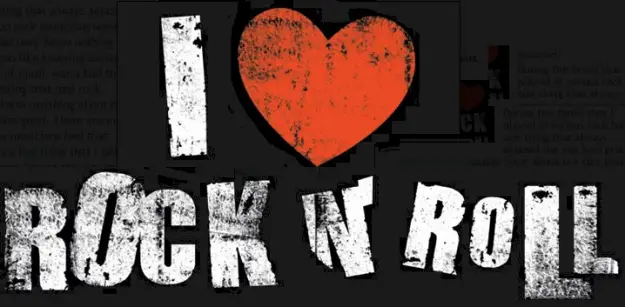
Blues Music
Blues songs were originally written by African slaves to depict their feelings, which obviously had a sad tinge to it. The main musical instrument used at that time was the harmonica.
Over a period of time, the Blues was developed into Rhythm and Blues (R&B), and then formed the basis of other forms of music.
Rap Music
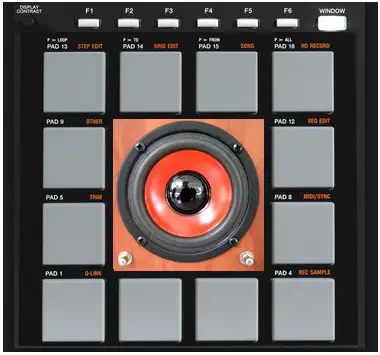 Rap music (also known as hip-hop) is basically a genre of African-American music in which rhyming lyrics are chanted to a musical accompaniment. So the lyrics are spoken, rather than sung.
Rap music (also known as hip-hop) is basically a genre of African-American music in which rhyming lyrics are chanted to a musical accompaniment. So the lyrics are spoken, rather than sung.
The music often consists of beats and rhythms that are inspired by soul, funk, and rock genres. Musicians typically use those rhythms, and add-in their own innovations and other synthesized musical elements.
Christian Music
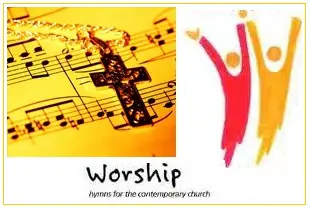 Christian music has developed tremendously over the last century to represent the changing style of music that we enjoy.
Christian music has developed tremendously over the last century to represent the changing style of music that we enjoy.
Contemporary music offers up-to-date music styles with the same traditional Christian message within the lyrics. In fact, Contemporary Christian music is growing quickly in popularity, and so is the number of sub-genres offered to those interested in listening.
This is also because the new generation of worshippers are hipster-cool, and radically free in spirit, so even the music has changed a bit to keep pace with the listeners, and to appeal to them.
Here, are a few of the newer genres in Christian music.
Contemporary
Contemporary music literally covers all genres of new age Christian music, but is most commonly associated with a new movement of Christian music that has alternative rock, pop, and country sounds. The contemporary movement began in the 1960s, with this type of music then referred to as Jesus music. Some Christians dispute whether or not the contemporary tones fit into their religion, but contemporary is a popular genre that gives Protestant listeners an alternative faith-based style of music.
Hip Hop
Christian hip hop, or gospel rap, is a unique genre of Christian music. Due to the often sinful nature of mainstream rap lyrics, it has been a tough road for Christian rap artists to gain popularity. However, beginning in the 1990s Christian rap has become popular with the younger generation looking for an uplifting form of music that reflects their urban lifestyle.
Gospel
If gospel music does not fill your sole with spirit, then I am not sure what can! Gospel music is uplifting, inspiring, and fun to listen to. When most think of gospel music, churches in the south come to mind. In fact, gospel music has been thought to have started during times of slavery in the late 1800s.
Christian Rock
Christian rock music covers a lot of ground with many different subgenres contained within the rock category. The “sex, drugs, and rock ‘n roll” explosion in the 1960s certainly made many Christians wary of jumping into the rock scene, but by the early 1970s Christian rock bands began to separate themselves from a demonic image, and instead produced Christian lyrics with rock tones.
Electronic Music Genres: Various Types
There are many who think that electronic music is one genre, however there are several sub-genres within, each with a distinctive sound and characteristics (even though they all use synthesizers and other electronic means to generate the sounds).
Electronic music is music that you create by using using electronic devices, synthesizers, electronic instruments and/or other digital music technologies. Electronic music is also loosely referred to as techno, EDM and related styles of music.
This genre of music is the outcome of decades of technical development and only in recent times has reached a stage where it is considered a part of the legitimate music sphere. For long it has been criticized by many, but today there’s a huge following for this genre of music, and irrespective of whether people condemn it or approve it, the fact is that you can no longer ignore it.
In terms of the sound produced, more and more producers are moving away from using electro-mechanical devices such as organs and electric guitars, to using pure electronic sound producing equipment such as synthesizers using computer.
A typical electronic music composition will make use of drum machines, samples, synthesizers and effects processors!
Electronic Dance Music (EDM)

EDM is also one of the most transportable genres; there’s no language barrier between countries. This is because the music is mostly instrumental (with little vocals, but lyrics doesn’t play a big part in the song).
Genres Within Electronic Music
If you understand electronic music well, I’m sure you would be tired of hearing people calling electronic music “techno”. For many, all forms of electronic music is techno; but the fact is that techno is different from genres such as trance, house & hardcore.
Few genres in which usually an electronic musician works include the following:
Ambient, Jungle, Break Beat, Chip-tune, Disco, Down tempo, Drum and Bass, Electro, Electronica, Electronic rock, Eurodance, Hardcore/Hard Dance, House, Industrial, Post-Disco, Progressive, Techno, Trance, and UK Garage.
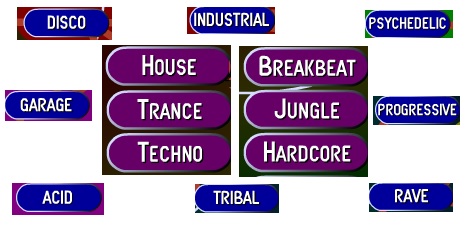
- Disco: Quite popular in the 1970s, this style uses loud vocals repeated over a rhythmic instrumentation pattern.
- Techno: Probably the most famous genre of electronic music today, techno emerged in the 1980s as a dance music that has since been divided into many more sub-categories, all with different characteristics.
- House: House music is a hybrid of disco and soul music.
- Trance: Intense music based on repeated synthesized phrases and the repeated build up and falling down of the melody.
- Electronica: Electronica is used both as foreground and background music, but it has some sub-genres that are now considered dance music as well.
- Progressive: Progressive music incorporates some elements of House music, but it also has a different song structure. There are no verses, only a build up, climax and end.
- Industrial: Defined as an aggressive form of music, modern industrial is often combined with other more traditional musical genres, like ‘industrial rock’ or ‘industrial metal’.
- UK Garage: Started in the United Kingdom and a descendant of House music, UK Garage features percussive rhythms and kick drums in its distinctive sound.

- Hardcore: This music is defined by its rapid beat patterns and the lack of a tonal center in its notes.
- Breakbeat: This music is identified by its use of a 4/4 drum pattern.
- Drum and Bass: This is a version of dance music that his characterized by fast breakbeats accompanied by a heavy bass line.
- Ambient Music: This music is characterized by sounds that are created to evoke an image or effect when the music is heard.
- Downtempo: This music is similar in calmness to ambient music, but usually is accompanied by a hypnotic beat.
- Electro: This music is characterized by its use of specific synthesizers and sampling of funk beats.
- Eurodance: With heavy influences from several electronic genres, today’s Eurodance music is typically a mix of trance and techno with heavy vocals included.
How to Play Rock Piano – Tips & Tricks
Learn How to play Rock Piano with style. Learn the rhythmic and harmonic concepts to be able to play in this style of music. How to play Rock Piano?… Do you envy those rock guitarists running around on the stage?… Running around may not be that easy if you are on the keyboards; Read more here…
How to Play Blues Piano – The 12 Bar Blues
Learn How to play Blues Piano – Get an overview of this musical style. Once you know the basics of playing the piano, perhaps the next step would be to try to familiarize yourself with the various styles of music, which you can play on the Piano. And what better than learning to play Blues piano Read more here…
How to Play Classical Piano
How to Play Classical Piano – Learn From The Masters Classical Piano still forms the basis of all music learning, and as far as the music is concerned it still continues to be used as the soundtrack for most of the movies. You may already be having some preconceived notions about classical music, Read more here…
How to Play Jazz Piano – Improvisations Galore
Learn How to play Jazz Piano – Get an overview of this musical style, learn to improvise and play jazz on piano! Are you looking for some direction on how to proceed…? Want to know how to improvise… substitute chords…? Don’t worry, help is at hand! Lot of people like Jazz piano because of the Read more here…
This is not really a complete list of all the music genres, but more or less a sample of some of the more popular ones. If you’re an aspiring performer, finding your favorite genre is important and will certainly enhance your experience.
Useful Links
Here’s more on types of music, its history, definition, genre and artists.
KeytarHQ editorial team includes musicians who write and review products for pianists, keyboardists, guitarists & other musicians. KeytarHQ is the best online resource for information on keyboards, pianos, synths, keytars, guitars and music gear for musicians of all abilities, ages and interests.



Leave a Reply